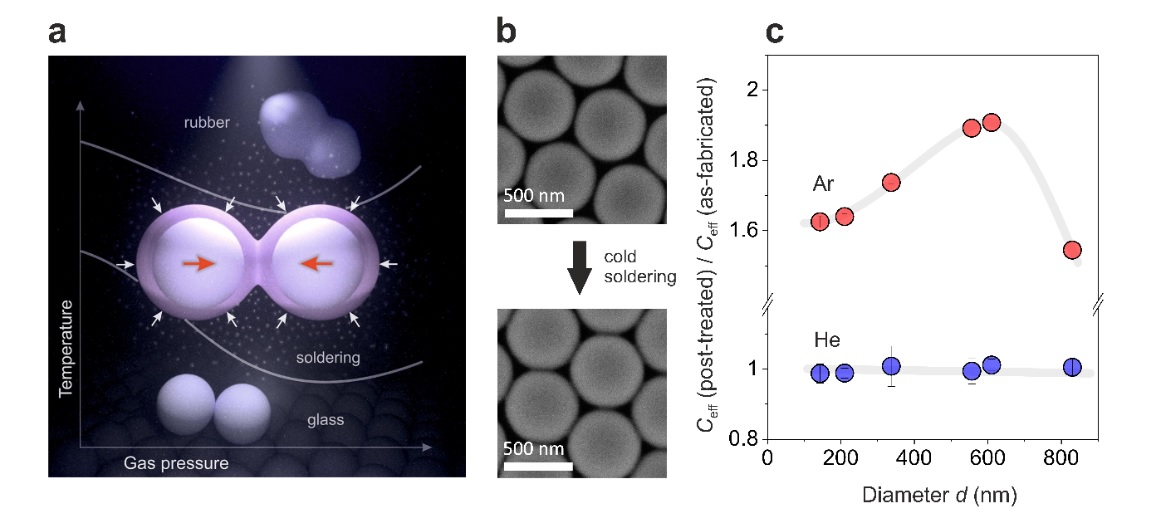Vibrational Spectroscopy of Nanoparticles
Self-assembled polymer colloidal crystals (CCs) have applications in designing photonic and phononic crystals, coatings, and templates for nanolithography. Cold soldering based on polymer plasticization by supercritical fluids is a low-cost, chemical-free approach for the uniform mechanical reinforcement of 3D CCs at room temperature. By employing Brillouin light scattering, we quantify the effect of nanoparticle size on the strengthening of interparticle contacts in polystyrene (PS) CC, evaluating the permanent change in the effective elastic modulus upon cold soldering. The soldering is most efficient for mid-size nanoparticles (diameter = 610 nm), increasing the effective elasticity of the colloidal crystals by over 90% compared with the pristine sample. This study opens new possibilities for the mechanical engineering of 2D and 3D polymer CCs utilizing adjustable parameters such as geometric and material features of nanoparticles, thermodynamic variables (pressure, temperature), solubility, and time.

References:
Mechanical Reinforcement of Polymer Colloidal Crystals by Supercritical Fluids, V. Babacic et al. J. Colloid Interface Sci. 579, 786–793 (2020), Size-Dependent Nanoscale Soldering of Polystyrene Colloidal Crystals by Supercritical Fluids, J. Varghese et al. J. Colloid Interface Sci., 633, 314–322 (2023).